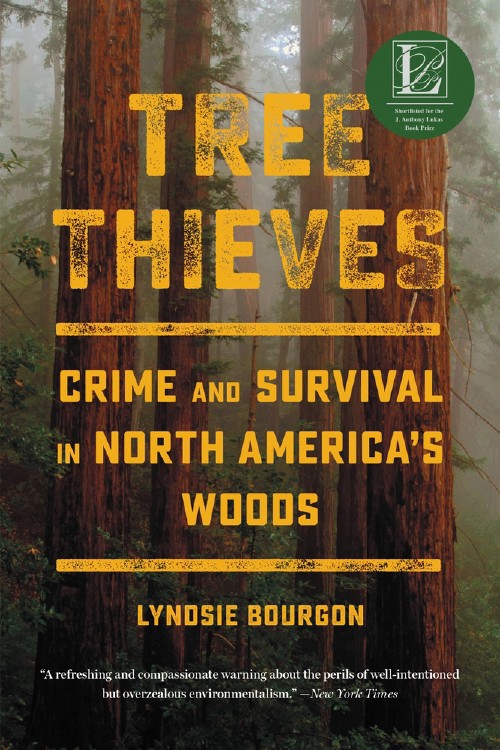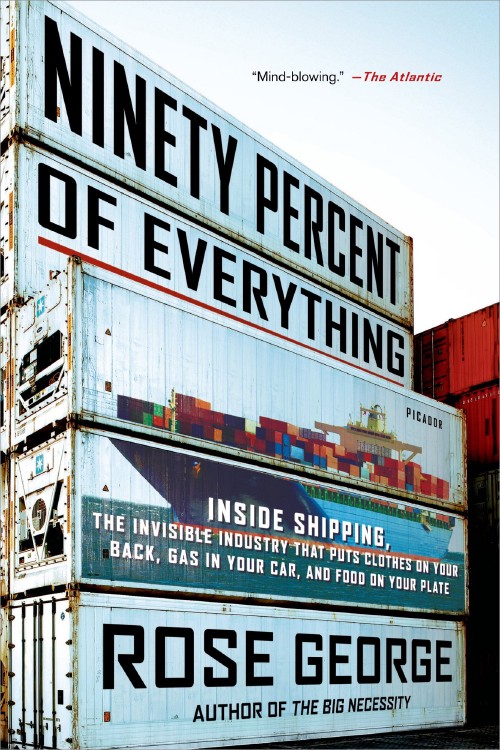I’m going preface this by admitting that the candidate I support in the primaries is Elizabeth Warren. It’s also important for me to say that if Bernie is the eventual nominee, I will be so excited to campaign for him and vote for him. Ok.
In the past few months I’ve encountered an argument for Bernie about how if he were elected president, he would represent a completely new model for the Presidency. This argument is best summarized by the In These Times piece “What a Bernie Sanders Presidency would Look Like” that argues Bernie, unlike past presidents, would be an Organizer in Chief. And because he’s an organizer, he’d have a movement behind him that would be disruptive against the political status quo and allow him to pass the ambitious policy proposals he’s campaigning on.
Taken at face value, I love this argument. We absolutely need to rethink politics in America at the federal level because the Climate Crisis is not an issue we can negotiate with or water-down. And since climate change will exacerbate every other injustice that is structurally embedded in America, we need a radical political shift that is capable of generating momentum that, until now, has not existed in the liberal political sphere. I am ready to support any candidate who is generating this momentum.
But I’ve struggled to make sense of the argument that Bernie will be the Organizer in Chief because I can’t find any evidence that’s doing the work of organizing. And to be clear, this is not a job description that Presidents necessarily need to fill in order to succeed. Senator Sanders could become President and succeed wildly even if he is not the Organizer in Chief. So please don’t read this as me arguing against his candidacy, rather I’m trying to make sense of the rhetoric his supporters present in favor of his candidacy.
The only way I know how to sort through this is to examine what I understand the role of an organizer to be, and then compare that against what Bernie is doing. And yes, I believe that there is a candidate doing the work of being an organizer but that candidate is Senator Elizabeth Warren. And just to be absolutely clear, I am not arguing against either candidate becoming President, but I am trying to use the facts I can find to sort out what each of them thinks the President’s job is, so I can make an informed decision about my ongoing support for one or the other until a candidate is chosen. This will also help me figure out how to talk about them when one (oh god, please let it be one of them) becomes the Democratic Presidential nominee.
Organizing people, in the sense of trying to build collective movements for liberation or political change, is incredibly difficult. People are incredibly messy, every person has their own traumas and baggage and goals and desires. Everyone is going to be operating from their own history, context, personality, emotional capacity, and so on. Organizers deal with this every day, trying to listen to disparate concerns, build trust, and generate consensus and momentum around the collective goal. It’s hard work, and many people are doing this around the US every day.
I am not an organizer, I want that to be clear. If the above paragraph misrepresents the work of organizing, the rest of this post kind of falls apart. But I built this description from watching friends and acquaintances who are organizers do their job and sort through the emotional toil it takes. I call that out because I’m trying to be honest about the limits of my experiential knowledge.
If this definition of organizing is accurate, then broadly speaking there’s three really critical aspects: 1) building a coalition, 2) making everyone in the coalition feel heard and respected, and 3) generating momentum. I would include the ability to maintain momentum, but I can’t imagine how that’s possible if you aren’t succeeding at 1 and 2, and so generating momentum and maintaining momentum seem inextricable.
Bernie has the slogan “Not Me. Us.” which points very much towards having a coalition. But the thing that has stood out to me in the past few months of trying to learn more about his campaign and him as a person specifically, is I struggle to find instances where he doing the hard, sometimes invisible labor of building a coalition. The moment this jumped out at the most was in his own words when the New York Times editorial board interviewed him:
Look, I don’t tolerate bullshit terribly well, and I come from a different background than a lot of other people who run the country. I’m not good at backslapping. I’m not good at pleasantries. If you have your birthday, I’m not going to call you up to congratulate you, so you’ll love me and you’ll write nice things about me. That’s not what I do. Never have. I take that as a little bit of a criticism, self-criticism. I have been amazed at how many people respond to, “Happy Birthday!” “Oh Bernie, thanks so much for calling.” It works. It’s just not my style. I try to stay focused on the important issues facing working families in this country, and I fight for them.
Ok, the man is not that good at emotional labor. That’s definitely not abnormal for white dudes, speaking as one. But organizers generally understand how to make people feel seen and why that work is important. In the case of Bernie though, this goes deeper, from my perspective. He’s not even doing the work of building coalitions politically. He announced his candidacy last year in February. In the 10 months following, he endorsed only 2 candidates: two District Attorney candidates running in fairly liberal districts. I can’t find any evidence that he’s working to win the senate in 2020 or supporting House candidates, even though whoever is President in 2021 will be unable to pass a single bill without a congressional majority. Should he become President, what politicians will be working with him? How his he building those connections to make his policies more likely to pass?
Elizabeth Warren, in contrast, is doing this work. She has endorsed numerous candidates across the US, for local and national political offices. There are many stories of politicians at local and national levels who won or lost their races and in the aftermath, received a call from Warren offering encouragement and support. I’ve found stories of her reaching out to activists in various communities to listen and understand their expertise and concerns. Taken together with the fact that her campaign has involved multiple ways that the broader electorate could interact with her directly—her so-called “selfie” lines that last for hours after a campaign event and also the way she has chosen to replace traditional phone-time where candidates pander to big-money donors with a phone-time involving her calling small-dollar donors—Warren seems to be much more involved in the work of actively building a coalition than anything I know Bernie is doing.
The second part of being an organizer, as I understand it, is listening to your coalition and involving them in your movement. And this too, I struggle to find evidence that Bernie is doing the work. In 2016 it took a couple high-profile protests at his campaign events to get him to listen to the Black Lives Matter movement, a movement that had been going strong for at least 2 years at that point. And to his credit, his campaign in 2020 is doing much better about recognizing the distinctly American injustices of structural racism against Black Americans. But it’s unclear to me how much his campaign is actively reaching out the many communities his plans would address. Even this extremely good BuzzFeed profile finds him recognizing the power of people telling their own stories, but it’s unclear how this feeds back into the creation and development of policies he’s campaigning on.
I think this stands in contrast to Elizabeth Warren. A recent example: in January she rolled out her campaign’s plan for disability policy. There were no videos involving disabled people making a plea for how the plan would help them, or talking about the struggles of ableism in America. Instead, she released the plan in her own words, while coordinating with a number of disability activists. I follow many of them on Twitter, and multiple activists told of how they had been in conversation with Warren’s team for months, and that the plan reflected their input and their expertise in the injustices of America. To me, there is marked difference between people saying “I have been involved in the creation of this plan and I support it on these grounds” versus marketing plans by making videos about the living under American Capitalism. The first is an organizing model, the second is a sales model. Both may be effective in a Presidential campaign, but talking about the differences feels helpful.
Another example of this type of organizing is when Warren was endorsed by 100 prominent Black womxn, it was with the understanding that the endorsement involved an accountability promise that Warren would uphold. These women did not simply endorse Warren as a candidate, instead they committed to holding Warren accountable as a partner in working towards their goals.
If Bernie has done this, I genuinely want to know. These type of reciprocal, accountable agreements feel deeply important if a candidate is going to take on the mantle of being an organizer.
The final part of organizing as I have defined it, is building momentum, and here I absolutely recognize that Bernie has a ton of momentum and a large movement behind him. But per the above analysis, I’m not convinced his momentum is because he’s an organizer, rather I think it’s because he’s a visionary. This, let me once again be clear, is not an argument against Bernie, it’s an attempt to sort through the rhetoric around him. Being a visionary is absolutely worthwhile in politics, it’s just distinctly different from being an organizer.
An organizer, just to recap, based on my understanding, is a person who is doing all the tough, emotionally draining work of earning people’s trust and then working with the people in the coaltion to build consensus, a consensus that hopefully generates momentum towards the collective goal.
But politics does not limit progress to this model, in fact there are numerous instances in American history where men (because presidents are always male) have not been organizers but have radically changed the path that the country is on. These men are people I would categorize as visionaries; men who rise to power by offering the electorate a different story than the one that is currently holding power. Bernie Sanders fits within this model: after decades of our politics being held captive by debates between right-wing conservatives and neoliberal centrists, Bernie is offering a distinctly leftist analysis of America, and is finding deep resonance amongst a broad swath of the country.
I just… I don’t think that Bernie is organizing, or that he will become President and serve as Organizer in Chief. Instead, based on all evidence I can find, he’s telling a new-to-presidential-campaigns story about why most everyone in America is hurting and struggling, and he’s finding that the electorate is receptive to his analysis. This analysis, his narrative, is the thing that is inspiring the movement. He’s got a lot of plans on his website that derive from this narrative, and at his rallies he is able to make a compelling case for how these plans will help the majority of America. But he personally is not an organizer. He’s asking people to trust his vision. And he has a team that believes in his narrative, and is working to help implement it.
This to me, is the biggest distinction between Warren and Bernie. The 2020 Presidential election in America is not the deciding factor for whether capitalism survives in the country or not. No matter who wins the election in November, Congress still exists and is a (supposedly) co-equal branch of the government. And there is no expectation that the House and Senate will become socialist if the President is. So whomever is President will be required to navigate the political realities of our government.
Bernie is presenting a visionary narrative that challenges the ways most Americans understand the system to work. He’s hoping that his story will rally enough people behind him that he can accomplish his ambitious plans. He’s working hard to energize people to make his plans a reality by presenting a strong vision for a different future, and hoping that vision will excite enough people to make it a reality.
Warren is presenting a narrative that perhaps is not quite as visionary, but also works to grapple with the incredibly complex structural realities. She is, however, doing the work to build a broad coalition of people: connecting with as many people as she can; providing emotional and financial support to other candidates; and inviting people affected by the harms of the current system to inform her policies for changing the system. She’s also working hard to energize people to make her plans a reality.
Based on the evidence I can find, Warren is the organizer. Bernie is a visionary. If there’s evidence to the contrary I’d love to see it. But everything I can find points in these directions, and it makes me question the leftist narrative that only Bernie has “the movement” that will allow him to accomplish his plans. Bernie’s movement is invested in him as a candidate. Warren also has a movement, and as far as I can tell, that movement is not only invested in Warren, but invested in working with her on the project of creating the future.
I don’t know the future, and I want to reiterate what I opened with; if Warren or Bernie are the Democratic Presidential nominee, I will be ecstatic. Both are exciting, if in different ways.
But I’d like to expand a little bit on the last contrast I drew. I cannot find the evidence that Bernie is an organizer, but I don’t think being a visionary is a bad thing. What I do think is a campaign based on vision creates more risk for failure.
Bernie, as far as I can tell, is asking people to support him because if we all join together and vote him in as President, his analysis and our support will be the thing that allows us to build a more equal America. But I have not seen evidence that Americans at large are being asked to get involved with evolving Bernie’s plans, or that Bernie is building a coalition in the broader American political sphere. And what I worry is that should he become President, he’s going to encounter the political realities of Congress and the fact that legislation requires votes, and he’s not going to have a lot of allies, even in his own party. I worry that the when he encounters this point shit will hit the fan. I worry that because people will have invested so much faith in him, and his ability to get things done, that any failure in passing legislation—even if congress is more to blame—will result in burnout and loss of momentum. And I think this is a valid fear, because his lack of coalition and trust-building now means people won’t feel personally invested.
I worry about this also with Warren, but less, because her plans are trying to grapple with the political realities of America, AND because she’s doing the work of organizing and getting people deeply invested in her plans. Warren is not pretending to be a visionary—despite her “I have a plan for that” motto—because she’s involving a broad coalition of people who would benefit from her plans in the crafting of the plans, not just the support of getting them passed. She working to earn the support of politicians at every level of American politics. She’s deeply invested in building momentum that’s premised on coalition building and listening and she’s banking on her momentum only being sustainable if she can uphold her commitments.
As far as I can tell Elizabeth Warren is the candidate who is running as an organizer. Bernie Sanders is running as a visionary. And neither of these angles is inherently better or worse than the other, but I’m tired of being confused on this issue.
Thanks for reading, and no matter what, I think our future is worth fighting for, and can bring liberation to us all. LFG.



